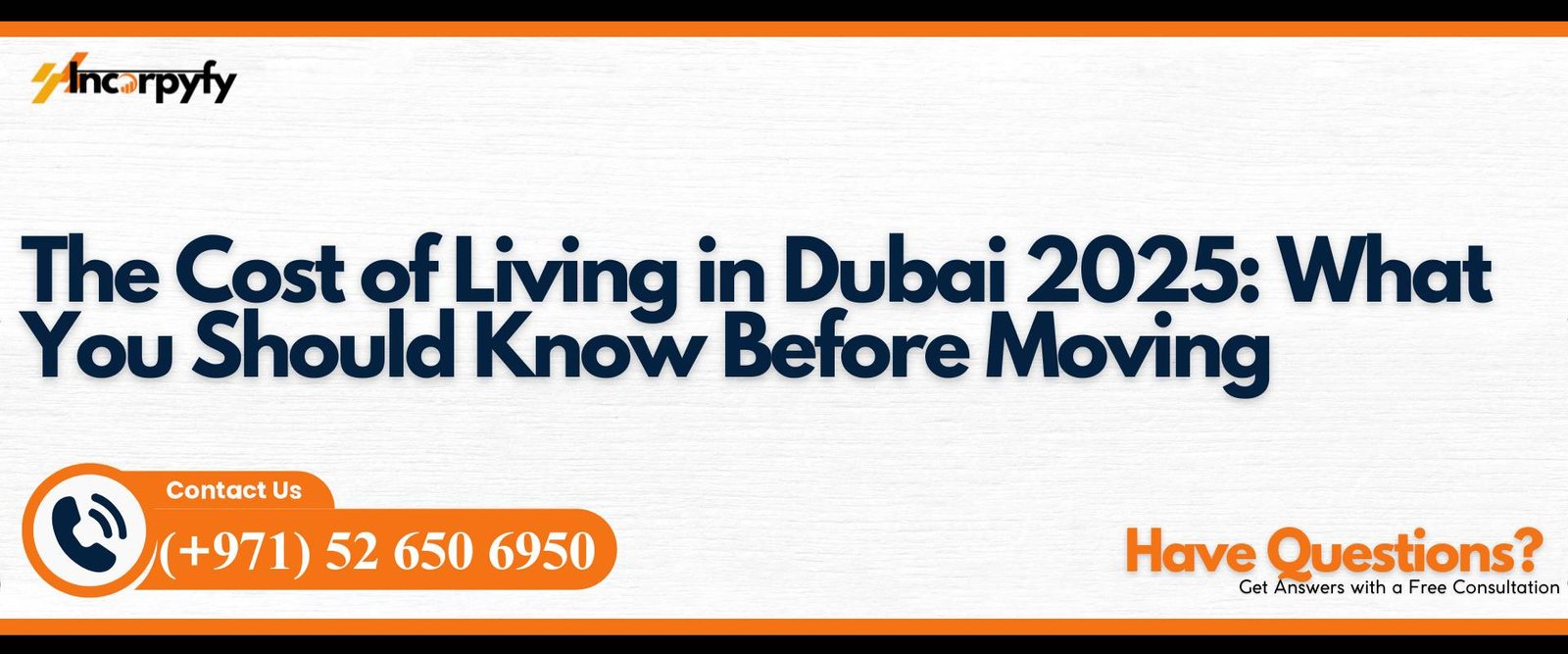
Dubai continues to attract professionals, investors, and families from around the world—and for good reason. It’s one of the most modern, multicultural, and fast-growing cities on the planet. From futuristic infrastructure to tax-free income, Dubai offers an incredible lifestyle. But living here also means you’ll need to understand and plan for real-world expenses. Whether you’re relocating for work, launching a new company, or starting a family, getting a clear picture of the cost of living in Dubai is essential for 2025.
The overall cost of living in Dubai varies widely depending on your lifestyle, location, and income. It’s possible to live on a modest budget, but you could just as easily spend lavishly. Housing, transportation, schooling, and groceries are key areas where your budget will stretch—or get strained. In this guide, we break down the actual costs you can expect to face so that you can plan with clarity and confidence.
Housing: The Largest Monthly Expense
Rent in Dubai accounts for the biggest portion of most people’s monthly budget. The cost of accommodation depends on the location, building quality, apartment or villa size, and whether it’s furnished. If you’re a single person or couple, you can rent a studio or one-bedroom apartment in budget-friendly areas like Al Nahda, International City, or Dubai Silicon Oasis for between AED 3,500 to AED 6,000 per month. For those looking for modern apartments in central locations like Downtown Dubai, Business Bay, or Dubai Marina, prices typically range between AED 8,000 and AED 12,000 monthly.
Families seeking larger homes may look at 2-3 bedroom apartments or villas in communities like Arabian Ranches, Mirdif, or Jumeirah Village Circle (JVC). Monthly rent in these areas starts from AED 10,000 and can go well over AED 20,000 for premium villas. Rent is often paid annually or in two to four cheques. The rise in demand for quality housing has seen rental prices rise moderately in 2025, so planning ahead is smart.
Utilities and Internet Services
Utilities in Dubai include electricity, water, and cooling—commonly billed by DEWA (Dubai Electricity and Water Authority). For an average one-bedroom apartment, expect to pay AED 400 to AED 700 per month, depending on usage and season. For larger villas, this can exceed AED 1,500, especially during summer months when air conditioning usage peaks.
High-speed internet and home TV packages from providers like Etisalat or du cost around AED 300 to AED 500 monthly, depending on your package and speed preferences. Most new buildings offer fiber connections and bundled deals that may also include landline services.
Transportation: Public vs. Private Costs
Getting around Dubai is easy, thanks to its excellent transport system. The Dubai Metro, buses, and trams are reliable and cost-effective. A monthly Nol card for unlimited travel costs about AED 300 and is perfect for professionals who rely on public transport.
For those who drive, fuel prices remain relatively low in the UAE, which is a bonus. However, owning a car involves additional costs like insurance, car registration, monthly loan payments (if financed), servicing, parking fees, and Salik toll charges. Altogether, you can expect private vehicle expenses to reach AED 1,500 to AED 3,000 per month.
Ride-hailing services like Uber and Careem are widely used, while traditional taxis charge a base fare plus distance. If you live and work in areas not directly connected by the metro, these options can quickly add up.
Food: Groceries and Dining Out
Your monthly food expenses in Dubai will vary depending on your eating habits. Grocery prices are reasonable if you shop at mainstream supermarkets like Carrefour, Lulu Hypermarket, or Union Coop. Singles can expect to spend AED 1,200 to AED 1,800 monthly on groceries, while families may spend between AED 2,500 and AED 4,000.
Dining out is a common part of Dubai’s culture. A quick meal at a food court might cost AED 25 to AED 40, while a mid-range restaurant dinner for two could range from AED 150 to AED 300. Fine dining can easily go higher, especially at high-end hotels or restaurants in the Marina and Downtown.
Healthcare: Insurance and Medical Costs
Healthcare in Dubai is high quality but primarily private. All residents are required to have health insurance, which is either provided by employers or bought individually. Basic health insurance plans cost between AED 1,500 to AED 3,500 per year, while more comprehensive packages may go up to AED 10,000 or more annually, especially for families or those with pre-existing conditions.
Routine GP visits without insurance can cost around AED 200 to AED 400 per consultation. Dental treatments, specialist care, and diagnostics are also available across a range of private clinics and hospitals, with many offering international standards of care.
Education: Schools and Childcare
Dubai offers a range of private schools with curriculums from around the world—British, American, Indian, IB, French, and more. School fees vary widely based on the institution’s reputation, facilities, and grade levels.
Annual school fees in Dubai start around AED 20,000 for affordable schools and can reach AED 80,000 to AED 120,000 per year in premium international schools. Parents should also budget for uniforms, school transport, books, and activity fees. Nursery fees for younger children range from AED 2,000 to AED 4,000 per month.
Lifestyle and Entertainment
Dubai offers every form of entertainment imaginable—from beaches and brunches to desert safaris and theme parks. However, all this comes with a cost.
Monthly gym memberships start at AED 150, while premium fitness clubs charge up to AED 600 per month. A cinema ticket costs between AED 35 and AED 60, and weekend family outings to theme parks or resorts can run AED 500+. Dubai also hosts many free public events, festivals, and cultural activities, making it easy to enjoy life on a budget if planned wisely.
Clothing, Personal Care, and Miscellaneous Costs
Dubai is a shopper’s paradise, with everything from budget brands to luxury boutiques. A moderate monthly budget for clothing and personal care could be AED 500 to AED 1,000, depending on personal lifestyle.
Other regular expenses include:
- Mobile plans: AED 100–250 monthly
- Personal grooming (salons, barber shops): AED 100–300 per visit
- Household items and cleaning supplies: AED 300–500 monthly
Living expenses can add up, especially if you enjoy shopping, dining out, or traveling regularly.
Summary: Average Monthly Cost Breakdown
| Category | Single (AED) | Family of 4 (AED) |
| Rent | 5,500 | 15,000 |
| Utilities & Internet | 800 | 1,200 |
| Transportation | 1,200 | 2,500 |
| Food & Dining | 1,500 | 4,000 |
| Health Insurance | 400 | 1,500 |
| School Fees | N/A | 7,000 |
| Entertainment | 500 | 1,000 |
| Miscellaneous | 400 | 1,200 |
| Total | 10,300 | 33,400 |
Conclusion
Living in Dubai in 2025 can be as affordable or extravagant as you make it. While some areas of life—like schooling and housing—can be costly, other aspects such as transportation, groceries, and entertainment can be managed smartly with planning. Whether you’re an expat professional, a growing family, or a business owner, understanding the financial landscape is essential.
If you’re planning to start a company or move your operations to the UAE, working with trusted Business Setup Consultants in Dubai will give you the support you need to navigate legal, financial, and relocation matters with ease.
Frequently Asked Questions (FAQs)
Is Dubai affordable to live in for expats in 2025?
Dubai can be affordable with careful budgeting. While rent and schooling are major expenses, tax-free income and flexible lifestyle options help balance the cost of living.
What is a good monthly salary to live comfortably in Dubai?
For a single person, AED 12,000 to AED 15,000 monthly allows comfortable living. Families may need AED 30,000+ to cover housing, education, and living expenses.
Are there cheaper areas to live in Dubai?
Yes. Neighborhoods like Al Qusais, International City, Muhaisnah, and Dubai South offer more affordable housing compared to premium zones like Downtown Dubai or The Palm.
Do I need health insurance in Dubai?
Yes, health insurance is mandatory for all residents. Employers usually cover it, but individuals must purchase plans if self-employed or sponsoring dependents.
How much do school fees cost in Dubai?
School fees range from AED 20,000 to AED 120,000 annually, depending on curriculum and school reputation. Additional costs may include uniforms, transport, and activities.






